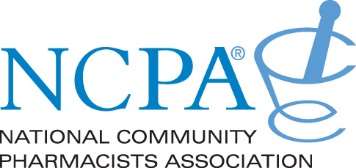
September 13, 2023
Secretary Xavier Becerra
U.S. Department of Health & Human Services (HHS)
200 Independence Avenue, S.W.
Washington, D.C. 20201
Assistant Secretary for Preparedness and Response Dawn O’Connell
Administration for Strategic Preparedness & Response
U.S. Department of Health & Human Services (HHS)
200 Independence Avenue, S.W.
Washington, D.C. 20201
RE: Increase Access to COVID-19 Antivirals for Historically Underserved Populations
Dear Secretary Becerra and Assistant Secretary O’Connell:
We, the undersigned (57) organizations, represent a broad range of patient populations and the communities that serve and support them. We write to you today regarding the urgent imperative to remove barriers to access for critical COVID-19 antiviral treatments, particularly for historically underserved populations, including payments to pharmacies for patient counseling and assessments before dispensing the medications. These assessments are time consuming as they include accessing lab values (i.e., kidney function tests).
The Centers for Disease Control & Prevention (CDC) has warned of the potential for a ‘tripledemic’ this fall – a convergence of rising cases of COVID-19, influenza, and RSV across the country. In recent weeks, the CDC has reported an increase in the number of COVID-19 infections and hospitalizations, an indication of the public health challenges our nation could face this fall and the need for a strong response strategy to protect vulnerable communities.
Nearly nine in ten Americans live within 5 miles of a pharmacy, making pharmacists the most accessible health care professionals in the country. Throughout the COVID-19 pandemic, pharmacists played an essential role in connecting members of their community with vaccines, treatments, tests and diagnostics. To date, pharmacists in the Federal Retail Pharmacy Program have administered over 307 million doses of COVID-19 vaccine and over 42 million COVID-19 tests.
Health care providers, including pharmacists, primary care physicians, and hospitals, rely on the Health Partner Order Portal (HPOP) to request and order U.S. government (USG) procured COVID-19 therapeutics. However, the HPOP digital infrastructure requires providers to jump through burdensome administrative hoops to request, order, and report the usage of COVID-19 therapeutics, all outside of the normal pharmacy workflow. These barriers are impacting the ability of independent and community pharmacists from being able to stock these medicines simply because they don’t have the resources available to navigate the complex HPOP system while managing on-going responsibilities. Without having these COVID-19 therapeutics readily accessible on shelves in pharmacies that serve rural and underserved areas, the gap in access to COVID-19 treatment and care is widening. Further, even if COVID-19 therapeutics are accessible to a pharmacy, the barrier of non-payment for patient assessment- to determine if the therapeutic is appropriate for the patient- remains an obstacle.
Throughout the COVID-19 pandemic, racial and ethnic minorities experienced higher rates of COVID-19-related hospitalizations than non-Hispanic White patients. This disparity was driven both by a higher risk for exposure and a higher risk for severe COVID-19 among racial and ethnic minorities. Today, 55% of U.S. pharmacists work in a community-based setting, with many maintaining close ties with the families they serve and establishing high levels of trust within their communities. Ensuring that these pharmacies can provide access to COVID-19 therapeutics and educate vulnerable populations about the importance of testing and speaking with their health care providers about treatment options, including racial and ethnic minorities, seniors, and those living with chronic conditions, can help slow rising rates of COVID-19 hospitalizations across the country.
As we reach the precipice of a potential ‘tripledemic’ this fall, HHS must ensure that patients can access these treatments. On behalf of the communities we serve, we urge HHS to alleviate the administrative burden on pharmacies serving rural and historically underserved populations by removing burdensome requirements pharmacists must follow in order to utilize the HPOP system and enable increased availability of COVID-19 therapeutics and provide reasonable compensation to pharmacies for assessing patients before dispensing the medication. Furthermore, HHS can take proactive steps to protect American communities ahead of a ‘tripledemic’ by providing continued resources and education to health care providers and consumers regarding the need for quickly testing and speaking with their health care providers about their treatment options upon symptom onset.
We thank you for your ongoing commitment to addressing the lasting impacts of the COVID-19 pandemic.
Sincerely,

Ronna B. Hauser, PharmD
Senior Vice President, Policy & Pharmacy Affairs
National Community Pharmacists Association
CCPA is a signatory to this letter sent to HHS. See the full list of signers on the attached document: Sign-On Letter to HHS – Increase Access to COVID-19 Antivirals.

